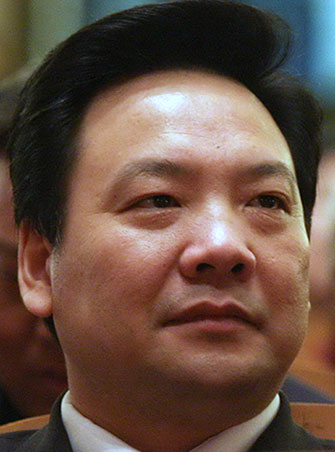
China's central bank's deputy governor Chen Yulu (Photo/chinadaily.com.cn)
China's central bank's deputy governor said devaluating the yuan does not serve China's best interests.
Contrary to public perception that a weaker yuan could boost price competitiveness and give exports a leg up, Chen Yulu, deputy governor of People's Bank of China, said China's massive intermediary goods trade, which accounts for 30 percent of the world's total, means that while yuan depreciation benefits final merchandise exporters, it would raise import prices on intermediary goods, thus squeezing Chinese manufacturers' margin.
"China is not only the world's largest manufacturer but also the largest middleman. Devaluation is hardly to the interests of China," Chen said on Tuesday at a PBOC—New York Fed joint symposium in Hangzhou.
Like other central bank officials, Chen reiterated that there was no basis for a persistent drop in the yuan, citing Bank of International Settlements (BIS) estimate of the yuan's real effective exchange rate was around 10 percent overvalued.
"The BIS estimated the real effective exchange rate was around 10 percent overvalued. If the yuan's real effective exchange rate is way below BIS estimates, there is not much room for renminbi depreciation. Therefore, it is very important to reference the yuan against a basket of currencies and keep it stable," Chen said.
He also warned of an increasing spillover effects from the "great divergence" in global monetary policies.
"U.S. Fed rate increase, at a time that most economies are cutting rates, might widen the interest rate gap between U.S. and the rest of the world, and further strengthen the value of the U.S. dollar. As the dollar goes up, emerging economies might face mutually reinforcing currency depreciation and capital outflow. Plunging commodity prices might compound their difficulties," Chen said.
"Under a strong-dollar cycle, if emerging economies didn't handle their foreign debt-incurred risks well, it could trigger financial turbulence in certain emerging economies, or the outburst of regional financial crisis."


















































